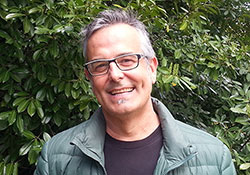Spain: Humberto Balantzategi Basaguren

Humberto Balantzategi Basaguren
Health experience related to: heart attack; kidney failure
Preparing patients to participate in care delivered across settings and supporting them to take an active role in managing their disease increases autonomy and commitment to a healthy lifestyle.
I had a heart attack several years ago. I was feeling pressure in my chest, which at first I thought was just a bit of anxiety, but finally I went to the emergency unit and was told that I had had a heart attack. I have been living with kidney problems since I was 18 and now I have renal failure as well. My kidney function is very low and I expect to start peritoneal dialysis sometime in the future.
For the time being, my cardiologists and nephrologists are closely monitoring my conditions and helping me control them. They have vaccinated me against pneumococcus, tuberculosis and tetanus in order to avoid possible infections should I have to start dialysis on short notice.
The nephrologist and nurse have prepared me physically and psychologically for the treatments and for anything else that may lie ahead. They informed me about eating a healthy diet, explained to me how dialysis works and taught me how I would need to take care of myself between treatments. One remarkable thing the nurse did was introduce me to another patient who had been on peritoneal dialysis for 10 years. That person talked with me about his health experiences and advised me what to expect when I begin treatment. I saw that he was doing quite well and that gave me hope and courage.
My family doctor follows my health very closely. She asks that I keep her informed of any changes in my condition or medications each time I visit the hospital. I take nine pills a day; sometimes the nephrologist changes the mix, so informing my doctor allows her to immediately adjust my prescription. She works closely with a nurse, who assists me with setting up appointments in case I need to see other specialists besides the nephrologist and cardiologist. If I have a sudden health problem or need to change an appointment, I can call her and she would help sort it out.
Although I am usually treated in Vitoria, at one point I needed to undergo surgery for herniated disks in San Sebastian. It was remarkable that the surgeon not only managed to access my medical record electronically, but also cared enough to learn about my medical history. When we met he asked me right away, "Which battle are you coming from?"
With respect to the treatments I received, the doctors always discussed the options with me. In the case of my kidney problem, I could choose between peritoneal dialysis and hemodialysis, and they communicated to me the advantages and disadvantages of each. I chose the former.
After my heart attack, the cardiologist advised me to start attending an outpatient cardiac rehabilitation centre. I did that three times a week for three months and the sessions included physical exercises and discussions with a psychologist, social worker and a nutritionist. They helped me learn how to manage my health better. In the end I went from feeling very unwell to wanting to take up sports for the first time in my life! Now I jog with a heart rate monitor, do gymnastics and walk regularly. I also abandoned my habit of social drinking.
Last year I was offered an opportunity to participate in an educational course on self-care called Active Patient. Each session in this course is led by a team of one patient with a chronic illness and one healthcare professional. The course taught me how to prepare and take my medication and, in the end, it enabled me to take control of my condition. This autonomy meant the world to me.



